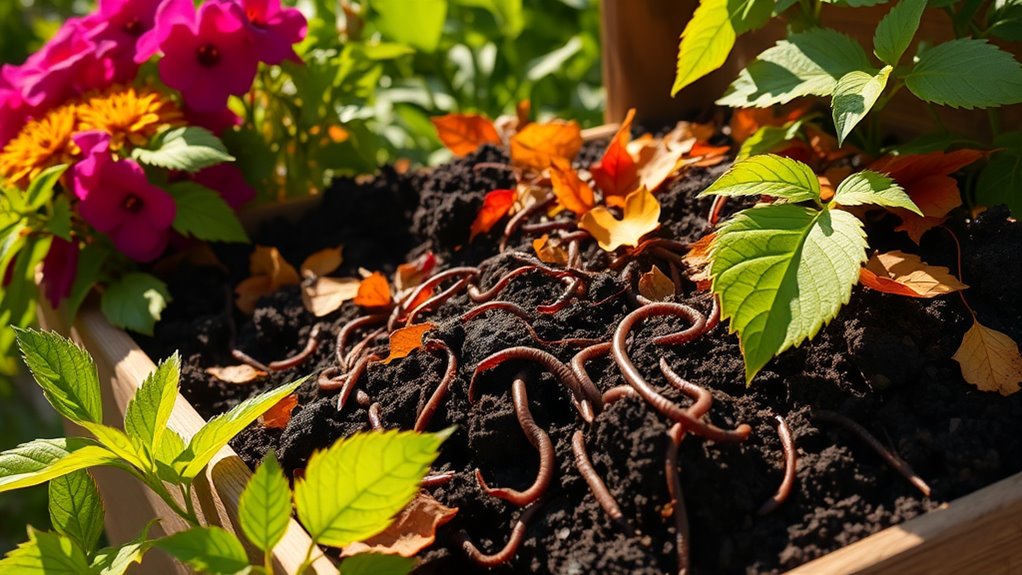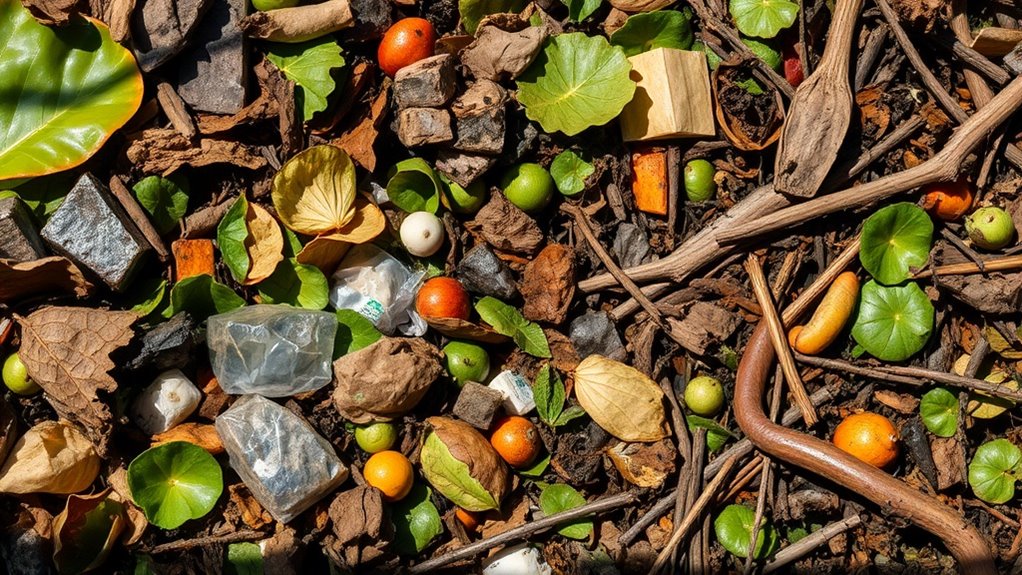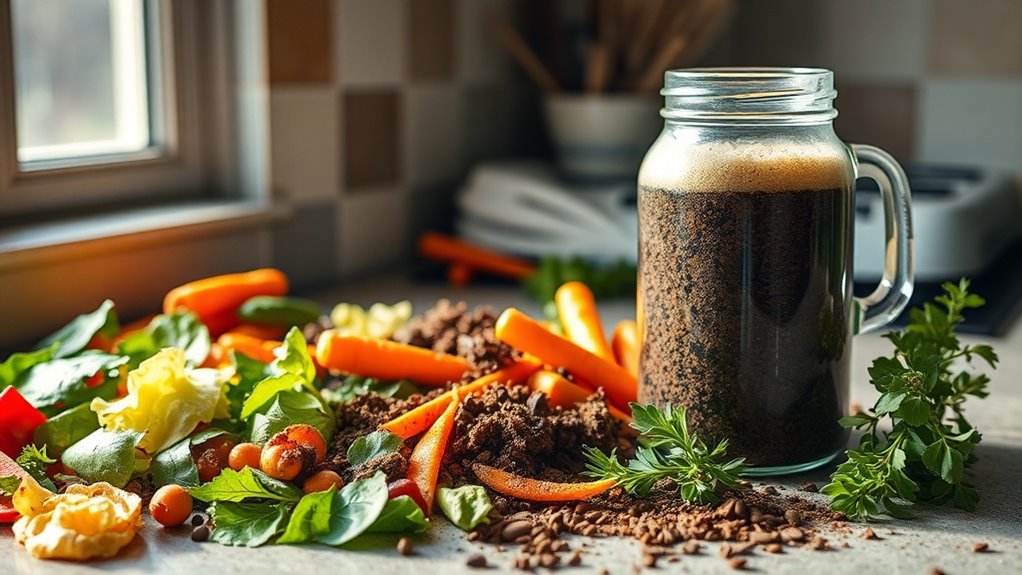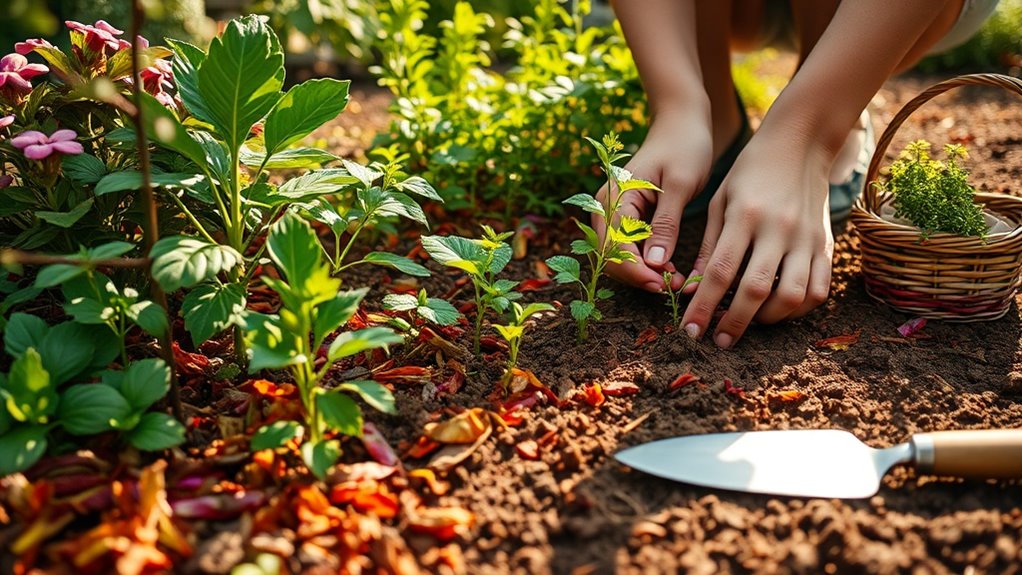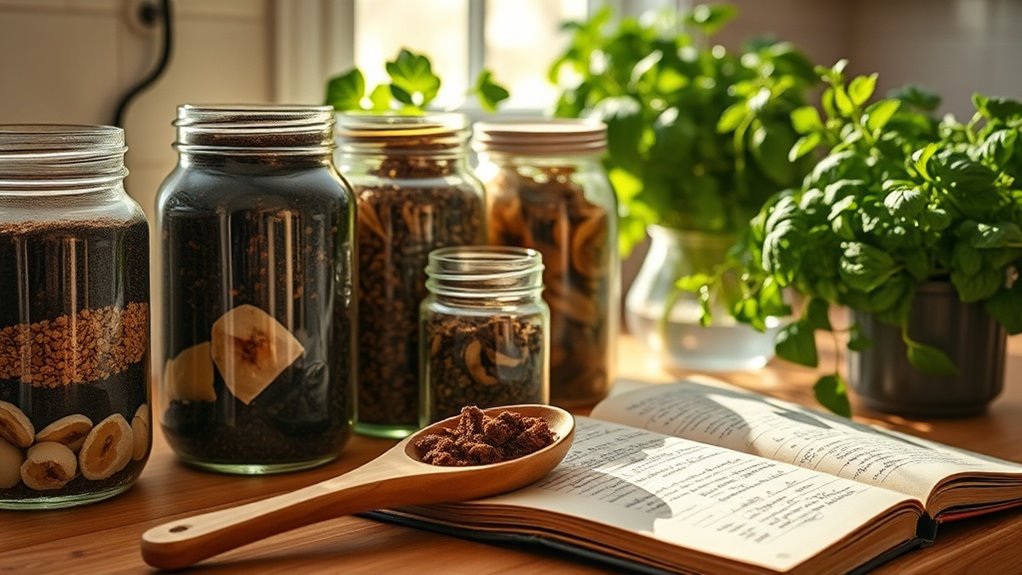Composting Didn’t Make Sense to Me Until I Tried This
You might think composting is complicated or unnecessary, but it doesn’t have to be. Many share this misconception until they see how simple it can really be. By understanding the essentials and starting with your kitchen scraps, you can transform waste into nutrient-rich soil. The process isn’t just beneficial for the environment; it can also enhance your garden’s health. Curious about how this shift can improve your daily life? There’s more to explore.
My Initial Hesitations About Composting
Although you might recognize the benefits of composting, you could initially hesitate due to misconceptions or overwhelming information.
Many think it’s complicated, requiring elaborate setups. However, easy composting is absolutely achievable.
You can start small with kitchen scraps and yard waste. In fact, odor-free composting can be easily implemented, making the process even more inviting for beginners.
Over time, you’ll realize it’s not just practical—it’s an empowering way to reduce waste, enrich soil, and support sustainability.
Discovering the Basics of Composting
Once you overcome your initial hesitations about composting, understanding the basics becomes a straightforward and rewarding journey.
You’ll see the benefits quickly when you grasp essential concepts:
- Green materials like kitchen scraps provide nitrogen.
- Brown materials like dried leaves supply carbon.
- Aeration enhances decomposition.
- Moisture levels affect microbial activity.
In addition, incorporating layers in composting allows for better air circulation and decomposition, enhancing the quality of your finished product.
Mastering these fundamentals empowers you to turn waste into valuable compost effortlessly.
The Easy Method That Changed Everything
One simple method transformed my approach to composting and made it more manageable than ever. By using a layered approach, you’ll notice how easy it is to combine materials. This method optimizes decomposition and reduces odors. Building a compact compost bin can further enhance your composting experience by making it easier to manage in any corner of your home or garden.
| Layer Type | Purpose |
|---|---|
| Green Materials | Boost nitrogen levels |
| Brown Materials | Add carbon and structure |
| Soil or Compost | Introduce microorganisms |
This strategy simplifies the process significantly.
Immediate Benefits I Noticed
After adopting the layered approach to composting, the immediate benefits became strikingly clear.
You’ll appreciate how quickly your waste reduction efforts pay off:
- Decreased landfill contributions
- Enhanced waste management efficiency
- Greater nutrient availability for soil
- Instantly improved kitchen odor control
These immediate changes not only make composting rewarding but also elevate your sense of environmental stewardship, fueling your commitment to sustainable practices. Additionally, using techniques like fast composting can help you transform your kitchen scraps into nutrient-rich compost even faster.
How Composting Improved My Garden
Although it took time to see the full impact, composting has transformed my garden into a vibrant ecosystem that thriving plants call home.
By enriching the soil, compost improves nutrient availability and moisture retention, leading to stronger growth and increased biodiversity.
You’ll notice healthier plants, fewer pests, and an overall flourishing environment.
In addition, using compost tea as a supplement can further enhance natural fertilizers to strengthen your plants.
Embracing composting can truly unlock your garden’s potential.
Tips for Beginners to Start Composting
Here are some essential tips to ease your journey:
- Choose a convenient location.
- Balance green (nitrogen) and brown (carbon) materials.
- Turn your pile regularly for aeration.
- Keep an eye on moisture levels.
Getting started with a DIY compost bin can make the process even more manageable. With these steps, you’ll create rich compost in no time!

